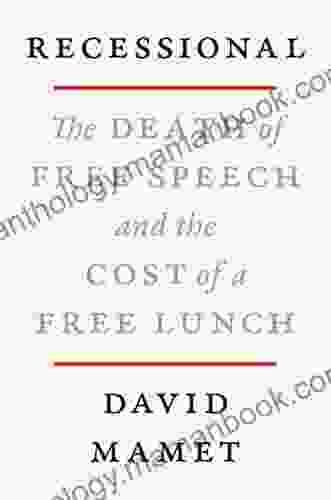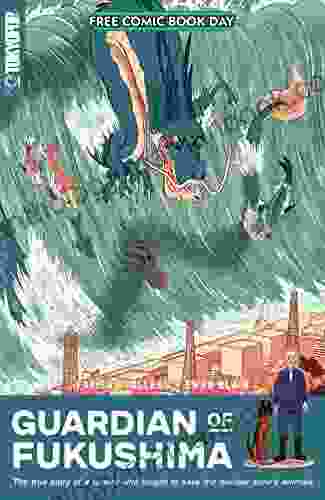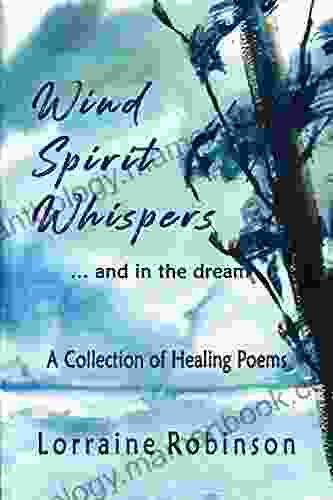The Death of Free Speech and the Cost of Free Lunch: A Comprehensive Analysis of the Erosion of Civil Liberties in the Digital Age

Free speech is a fundamental human right that is essential for a democratic society. It allows us to express our thoughts and ideas freely, without fear of censorship or reprisal. However, in recent years, free speech has come under increasing attack, both online and offline.
This article will examine the decline of free speech in the digital age, exploring the factors contributing to its erosion and the consequences of this loss. We will also analyze the societal implications of this decline and conclude with a call for action to protect free speech and preserve the values of open dialogue and critical thinking that are essential for a democratic society.
There are a number of factors that have contributed to the erosion of free speech in the digital age. These include:
4.5 out of 5
| Language | : | English |
| Text-to-Speech | : | Enabled |
| Enhanced typesetting | : | Enabled |
| X-Ray | : | Enabled |
| Word Wise | : | Enabled |
| Print length | : | 240 pages |
| File size | : | 2544 KB |
| Screen Reader | : | Supported |
- The rise of social media platforms: Social media platforms have become increasingly powerful in recent years, and they have played a major role in the erosion of free speech. These platforms often have their own terms of service that restrict what users can say, and they have been known to censor content that is critical of the platform or its advertisers.
- Government censorship: Governments around the world are increasingly using censorship to suppress dissent. This censorship can take many forms, including blocking websites, filtering content, and arresting activists.
- The rise of political correctness: Political correctness is a term used to describe a set of social norms that dictate what is and is not considered acceptable to say. Political correctness has led to the silencing of many voices, as people are afraid to speak out for fear of being labeled offensive or insensitive.
The erosion of free speech has a number of negative consequences for society. These include:
- The erosion of trust: When people are unable to express their thoughts and ideas freely, it erodes trust in the government and other institutions. This can lead to a breakdown in social cohesion and a decline in civic engagement.
- The stifling of dissent: Free speech is essential for dissent. When dissent is stifled, it can lead to a society where only one viewpoint is tolerated. This can stifle creativity and innovation, and it can make it difficult to solve problems.
- The emergence of a culture of self-censorship: The erosion of free speech can also lead to a culture of self-censorship. This occurs when people are afraid to speak out for fear of being punished. Self-censorship can have a devastating impact on society, as it can prevent people from expressing their true thoughts and feelings.
The erosion of free speech has a number of societal implications. These include:
- The rise of extremism: The erosion of free speech can lead to the rise of extremism. This is because when people are unable to express their views peacefully, they may resort to violence as a way of making their voices heard.
- The decline of democracy: Free speech is essential for democracy. When free speech is suppressed, it makes it difficult for people to participate in the political process and to hold their leaders accountable.
- The loss of our collective humanity: Free speech is essential for our collective humanity. It allows us to share our stories, our experiences, and our ideas with each other. When free speech is suppressed, we lose a part of ourselves.
The erosion of free speech is a serious threat to our democratic society. We must take action to protect this fundamental right. Here are some things we can do:
- Speak out against censorship: When we see censorship happening, we must speak out against it. We can do this by writing letters to our elected officials, contacting the media, or joining protests.
- Support organizations that are fighting for free speech: There are a number of organizations that are working to protect free speech. We can support these organizations by donating money, volunteering our time, or spreading the word about their work.
- Use our voices to speak out for what we believe in: The best way to protect free speech is to use our voices to speak out for what we believe in. We must not be afraid to express our thoughts and ideas, even if they are unpopular.
The death of free speech is a real threat. We must take action to protect this fundamental right. If we do not, we will lose a part of ourselves and our society will suffer.
Free speech is a fundamental human right that is essential for a democratic society. However, in recent years, free speech has come under increasing attack, both online and offline. This erosion of free speech has a number of negative consequences for society, including the erosion of trust, the stifling of dissent, and the emergence of a culture of self-censorship.
We must take action to protect free speech. We can do this by speaking out against censorship, supporting organizations that are fighting for free speech, and using our voices to speak out for what we believe in.
If we do not take action, we will lose a part of ourselves and our society will suffer.
4.5 out of 5
| Language | : | English |
| Text-to-Speech | : | Enabled |
| Enhanced typesetting | : | Enabled |
| X-Ray | : | Enabled |
| Word Wise | : | Enabled |
| Print length | : | 240 pages |
| File size | : | 2544 KB |
| Screen Reader | : | Supported |
Do you want to contribute by writing guest posts on this blog?
Please contact us and send us a resume of previous articles that you have written.
 Top Book
Top Book Novel
Novel Fiction
Fiction Nonfiction
Nonfiction Literature
Literature Paperback
Paperback Hardcover
Hardcover E-book
E-book Audiobook
Audiobook Bestseller
Bestseller Classic
Classic Mystery
Mystery Thriller
Thriller Romance
Romance Fantasy
Fantasy Science Fiction
Science Fiction Biography
Biography Memoir
Memoir Autobiography
Autobiography Poetry
Poetry Drama
Drama Historical Fiction
Historical Fiction Self-help
Self-help Young Adult
Young Adult Childrens Books
Childrens Books Graphic Novel
Graphic Novel Anthology
Anthology Series
Series Encyclopedia
Encyclopedia Reference
Reference Guidebook
Guidebook Textbook
Textbook Workbook
Workbook Journal
Journal Diary
Diary Manuscript
Manuscript Folio
Folio Pulp Fiction
Pulp Fiction Short Stories
Short Stories Fairy Tales
Fairy Tales Fables
Fables Mythology
Mythology Philosophy
Philosophy Religion
Religion Spirituality
Spirituality Essays
Essays Critique
Critique Commentary
Commentary Glossary
Glossary Bibliography
Bibliography Index
Index Table of Contents
Table of Contents Preface
Preface Introduction
Introduction Foreword
Foreword Afterword
Afterword Appendices
Appendices Annotations
Annotations Footnotes
Footnotes Epilogue
Epilogue Prologue
Prologue Teddy Crispin
Teddy Crispin Darlene P Winston
Darlene P Winston Padraic Colum
Padraic Colum Freeman Wills Crofts
Freeman Wills Crofts Tia Levings
Tia Levings Zoe Moore
Zoe Moore Don Nardo
Don Nardo David Lee Corley
David Lee Corley Eric Freeman
Eric Freeman Jacque Stevens
Jacque Stevens Lorine Mcginnis Schulze
Lorine Mcginnis Schulze Best Book Briefings
Best Book Briefings Alicia Michaels
Alicia Michaels Mike Duncan
Mike Duncan Hardik Ashwin Pandya
Hardik Ashwin Pandya David Solmonson
David Solmonson Gordon Lloyd
Gordon Lloyd Tarun Khanna
Tarun Khanna John Heil
John Heil Mark Nepo
Mark Nepo
Light bulbAdvertise smarter! Our strategic ad space ensures maximum exposure. Reserve your spot today!
 Evan SimmonsFollow ·16.1k
Evan SimmonsFollow ·16.1k Oscar BellFollow ·9.1k
Oscar BellFollow ·9.1k Jason ReedFollow ·15.1k
Jason ReedFollow ·15.1k Ken FollettFollow ·14k
Ken FollettFollow ·14k Bobby HowardFollow ·6.1k
Bobby HowardFollow ·6.1k Billy PetersonFollow ·9.3k
Billy PetersonFollow ·9.3k Wayne CarterFollow ·18.2k
Wayne CarterFollow ·18.2k Nick TurnerFollow ·4.5k
Nick TurnerFollow ·4.5k

 Vernon Blair
Vernon BlairThe Woman I Met in My Dream: An Unforgettable Night of...
As the veil of night...

 Carlos Fuentes
Carlos FuentesThe Ultimate Guide to Healthy Eating for Toddlers: Meal...
As a parent of a...
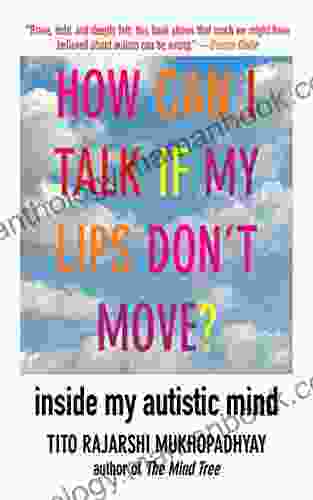
 Peter Carter
Peter CarterInside My Autistic Mind: A Journey of Self-Discovery and...
Autism spectrum disorder (ASD) is a...

 Isaac Asimov
Isaac AsimovA Journey Through Jane Austen's Literary Masterpieces:...
Jane Austen, the renowned English...
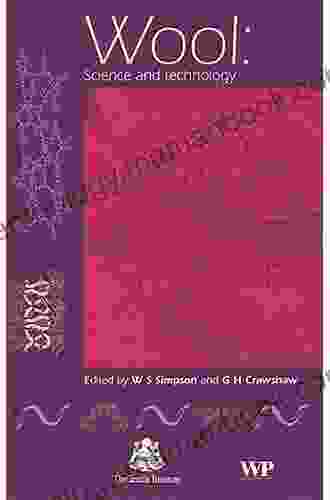
 Hank Mitchell
Hank MitchellAdvancements in Textiles: Science and Technology by...
The textile...
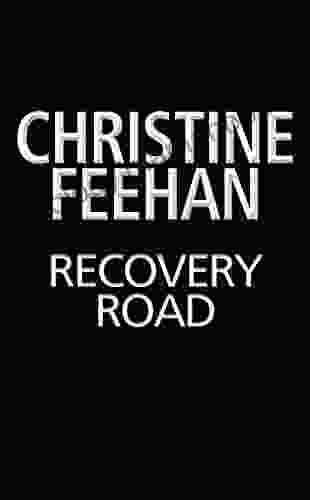
 Troy Simmons
Troy SimmonsRecovery Road: An Odyssey of Hope and Redemption by...
Recovery Road is a...
4.5 out of 5
| Language | : | English |
| Text-to-Speech | : | Enabled |
| Enhanced typesetting | : | Enabled |
| X-Ray | : | Enabled |
| Word Wise | : | Enabled |
| Print length | : | 240 pages |
| File size | : | 2544 KB |
| Screen Reader | : | Supported |


